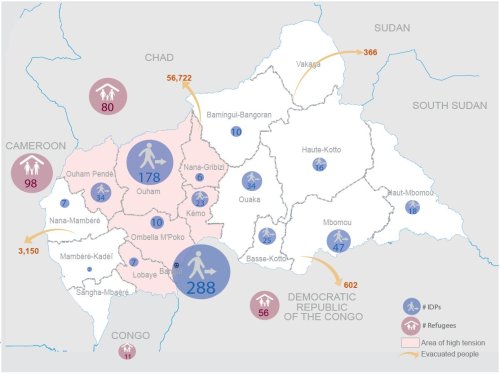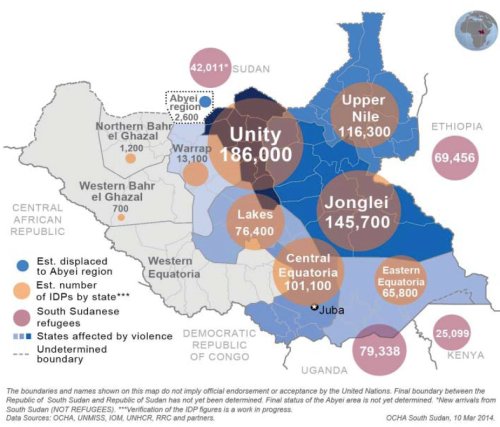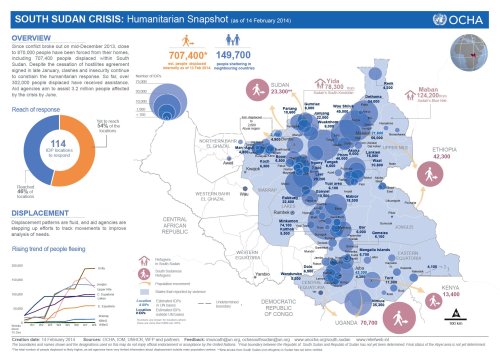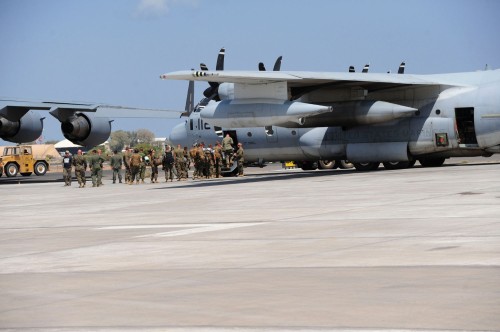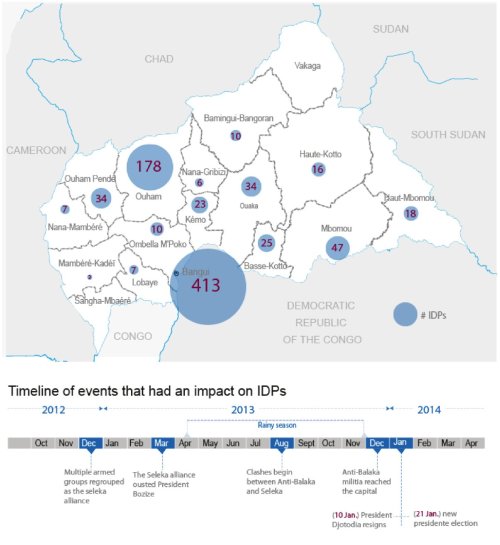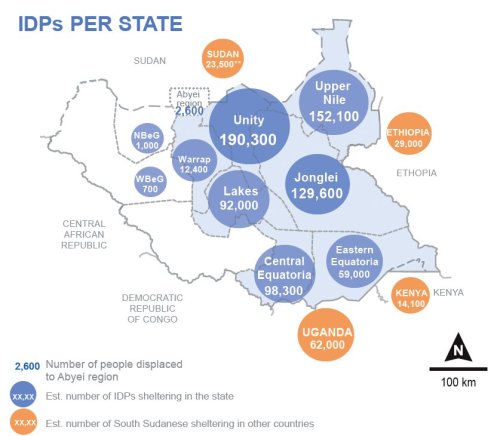French President Francois Hollande said today that the primary mission for his country’s forces in Central African Republic is to prevent a de facto partition there. President Hollande made the remarks to French troops in CAR’s capital Bangui. He is on his second visit to the embattled country in three months. France has some two thousand personnel in the country as part of Operation Sangaris, an intervention that began last December.
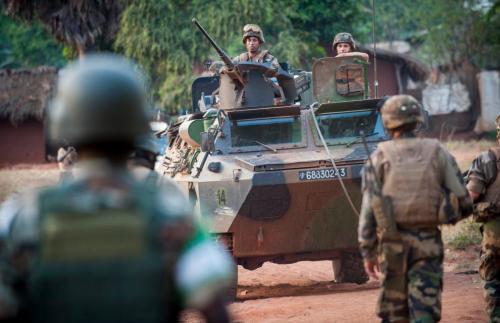
French troops patrol in Central African Republic with African forces from the African-led International Support Mission in the Central African Republic (MISCA), 24 February 2014
The visit comes just days after France’s parliament voted to extend the duration of the operation. Parliamentarians voted for the extension despite some criticizing President Hollande for underestimating the situation there. Two French soldiers have been killed as international peacekeepers try to disarm militias and stem the violence.
CAR has been locked in crisis since nominally Muslim Seleka rebels ousted President Francois Bozize last March. Their leader, Michel Djotodia formally disbanded the group after being named Interim President, but former rebels continued to operate with virtual impunity.
Violence has exploded, however, following Djotodia’s resignation and subsequent departure into exile in January. International forces, operating in CAR under a UN mandate, have been unable to prevent a string of violent reprisals against Muslim communities, especially in Bangui. Muslims have been fleeing the capital in recent weeks in the face of attacks from nominally Christian self-defense groups, collectively referred to as anti-balaka, which sprang up in response to the activities of ex-Seleka rebels.
This has in turn given rise to fears of a de facto partition of the country between the nominally Christian western portion and the nominally Muslim eastern portion. Aid agencies have also been reportedly faced with the dilemma about whether to assist in the movement of communities away from the violence. While this might save groups from massacres at the hands of various localized armed groups, it could also be in service of what amounts to “ethnic cleansing” and reinforce fears of a split in the country. The duty to protect civilians and fears about essentially assisting in atrocities have proven continually to be difficult to balance in peacekeeping operations, including notably during UN efforts in Bosnia in the 1990s.
CAR’s new interim president, Catherine Samba-Panza, has basically declared war on militias, but with accusations of complicity on the part of government security forces and the limited resources of international forces currently, there has been little movement to curtail their activities. Currently there are six thousand African peacekeepers in the country, in addition to the French forces there. The European Union has pledged additional forces, and it is hoped that the international presence in CAR will expand soon to a total of some nine-thousand personnel.
A good example of the difficulties that peacekeepers have faced came earlier this week when the African-led International Support Mission to the Central African Republic (MISCA) reported the arrest of Patrick Edouard Ngaissona. Ngaissona styles himself a “coordinator” of anti-balaka groups. However, MISCA retracted this statement yesterday, saying instead that they had actually captured a more minor anti-balaka member of the same name. President Hollande is to meet with Interim President Samba-Panza, no doubt to discuss the issue of militias among other problems that the country faces.

